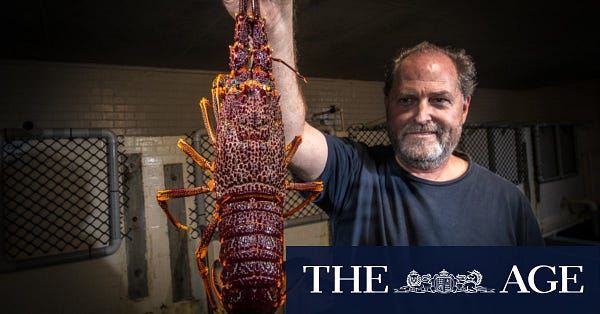Biden-Harris declared winners, China quashes a multi-billion dollar IPO and Canberra-Beijing diplomatic row takes toll on lobsters
2 - 8 November 2020
A ROLLER-COASTER RIDE
And the winners are...drum roll...Joe Biden and Kamala Harris!
Needless to say, it was an exceptionally wild election season in the United States. The country - and the world - collectively held its breath for four days following a record turnout.
Ultimately, the final leg of the battle took place in a handful of states. Americans wondered if Arizona had been called too early; would there be a recount in Wisconsin; and why the heck was Nevada taking forever to give updates?! Then, on Saturday, Pennsylvania's tally swung to the Democrats, giving Biden enough electoral college votes to be deemed president-elect. He will be sworn in as Commander-in-Chief on 20 January 2021, with Harris breaking glass ceilings as Veep.
However, the contest was incredibly close and predictions of a 'blue sweep' proved to be false. Yet again, the pollsters failed to accurately capture the public mood. Trump actually increased his supporter base from 2016, indicating Number 45 wasn't an aberration. Indeed, there's frustration that Biden and Harris will have to contend with a fractured Congress. Several "Republican newcomers are more Trumpier than Mr Trump," said the FT.
No doubt various communities, candidates and protocols will be examined as the dust settles. Americans admit their country is divided along numerous lines: urban vs rural, progressive vs conservative, upper-middle class vs working class, West Coast vs Mid-West, and so on.
Of course, it's worth remembering that the US is a huge democracy, second only to India. In a bizarre way, this week demonstrated how a version of modern democracy - warts and all - functions. Despite the controversy, each vote was counted, postal ballots weren't ignored, there wasn’t any widespread rioting, and the process unravelled at its own speed.
PULLING THE PLUG
Over in Asia, another powerhouse made moves that also raised eyebrows.
Late on Tuesday, Chinese regulators suddenly suspended the mega US$35 billion dual listing of Ant Group in Shanghai and Hong Kong - just two days before the fintech's trading debut.
Business journalists swiftly compiled timelines in an attempt to connect the dots since China's policymaking is very opaque. Many linked the dramatic turn of events to Jack Ma's jabs at the mainland banking system in a speech he gave on 24 October. The outspoken billionaire co-founder of Ant and Alibaba was summoned to Beijing afterwards, and apparently his defence did little to assuage their concerns.
The Ant saga is multi-faceted: Is this a play by the CCP to force private enterprises to conform? Why didn't the regulators flag worries about Ant's loan and credit risks earlier? Does this delay damage the Shanghai exchange's efforts to rival the Nasdaq? Will Hong Kong brokers receive their Christmas bonus?
The Wall Street Journal video report below sums up the story.
DINNER IS NOT ON ME
On the international front, it seems China is using shellfish and alcohol to send a strong message to Australia.
After putting the squeeze on Australian barley and beef exports in recent months, Beijing is said to be targeting a range of other products from Down Under, including copper, timber, sugar and wine.
The confusion started last weekend when shipments of live rock lobsters were left stranded at Shanghai airport due to customs issues. Then Chinese buyers told their Aussie suppliers that they'd been warned to stop purchasing certain goods from the country.
Beijing has yet to make a formal announcement on the matter, but state media outlets were quick to criticise "Canberra's irrational attitude" towards normal customs inspections and slammed "ideology-based hostilities".
The fear among Aussie farmers and agro-commodity firms is that escalating tensions will massively hurt revenues. China is their biggest market by far and no one can afford to cancel contracts in the midst of a recession.


Analysts say Beijing is probably using this multi-billion dollar relationship to punish Canberra for requesting an international inquiry into the source of Covid-19 as well as its allegations of foreign interference in domestic affairs.




